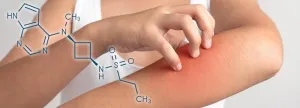(Press-News.org) Drugs like Ozempic, Wegovy and Mounjaro have been around for years, but they’ve recently been making headlines due to a rise in popularity as weight loss agents. They all belong to a class of drugs known as glucagon-like peptide-1 receptor agonists (GLP-1RAs), which mimic a hormone (GLP-1) in the body that helps control insulin and blood glucose levels and promotes feelings of satiety.
These drugs are extremely effective for blood glucose control and weight management, which, combined with their relatively limited side effect profile, makes them very appealing for diabetes treatment — the purpose for which they originally received FDA approval.
However, off-label use fueled by celebrities and social media is a growing concern. And even when physicians are prescribing GLP-1RAs for their intended uses, it’s not a magic formula — there are complex considerations such as dosages, costs, side effects and comparisons between specific drugs.
“The current fervor for GLP-1RAs in the capital markets as well as in the general public, especially in terms of weight reduction, is probably going to result in overuse,” said Chun-Su Yuan, MD, PhD, the Cyrus Tang Professor of Anesthesia and Critical Care at the University of Chicago. “This should raise a red flag.”
Living up to the hype
While experts caution against overusing GLP-1RAs or viewing them as a universal cure-all for obesity, physicians and researchers agree that the drugs are highly effective for weight management and Type 2 diabetes treatment.
“Some other treatments for Type 2 diabetes can actually cause weight gain, whereas GLP-1RA drugs effectively control blood glucose levels while also reducing body weight,” Yuan said.
Yuan and a group of other researchers recently published a paper comparing the effectiveness of different GLP-1RAs. Different drugs performed better in different areas, but all 15 GLP-1RAs they analyzed were very successful in lowering blood glucose and achieving weight loss. They also identified some secondary benefits, such as lowering cholesterol.
Similarly, Eric Polley, PhD, a UChicago data science and public health expert, recently led a study published in Nature Cardiovascular Research that used statistical modeling to simulate a clinical trial comparing the effects of four different classes of diabetes medication in patients with moderate cardiovascular risk. GLP-1RA drugs came out on top, not only controlling blood glucose and weight but also reducing the risk of major heart-related events and the risk of death overall.
Not a silver bullet: making nuanced decisions for each patient
However, GLP-1RAs are not universally effective for all patients, and Yuan said that even after deciding to prescribe this drug class, physicians should consider multiple factors when selecting a specific drug and dosage. For example, co-morbid conditions like hyperlipidemia could tip the scale and make one drug more suitable for a specific patient.
Polley pointed out that even patients with similar clinical profiles might prioritize different aspects of their health or quality of life.
“If cardiovascular health is what you think is important for deciding between these drug classes, I think our most recent study provides some strong evidence. But if there are other outcomes that your patient is concerned about, then you have to consider the effect size for those other outcomes,” Polley said. He and other experts are working on subsequent research examining the effects of different diabetes treatments on other health outcomes and concerns, including a patient’s risk of cancer, blindness or amputation.
Another key consideration is side effects, which can vary significantly from patient to patient. While Yuan’s recent study confirmed the efficacy of GLP-1RAs, the researchers also found that some patients did experience adverse side effects, especially related to gastrointestinal issues like nausea and vomiting. They highlighted the need to consider potential tradeoffs between efficacy and side effects, finding that higher doses can have stronger efficacy but also induce more severe side effects.
“It’s also important to note that the long-term side effects of these drugs are not yet well-studied,” Yuan said. “If large swathes of the general public start taking them off-label for weight loss and then we find out years later that there are bad side effects, it could be a real issue.”
Rethinking long-term weight management strategies to overcome cost barriers
Yet another dimension affecting the use of GLP-1RAs is cost. The drugs are expensive, and experts say the recent spike in popularity has already led to shortages and increased hesitancy among insurance providers to cover these drugs.
“We know these drugs represent a massive breakthrough in our long fight against obesity-related clinical conditions, but their high cost has been the subject of substantial debate,” said David Kim, PhD, a UChicago health economist. “It presents a key barrier to equitable access to this great innovation.”
In pursuit of more equitable and cost-effective approaches to leveraging GLP-1RAs, Kim and a group of other researchers analyzed the potential impact of alternative weight loss programs. Specifically, they proposed an approach in which GLP-1RAs could be prescribed for an initial period of weight loss before patients transitioned to cheaper alternative interventions for weight maintenance such as lower-cost medications, behavioral health programs and support from nutritionists.
“We wanted to challenge the assumption that once you’re on a GLP-1RA drug, you have to keep taking it forever,” Kim said. “That’s where some of the affordability concerns are coming from: large populations are potentially eligible to take these drugs, and we can’t pay for a lifetime supply for everyone.”
The researchers’ model suggested that even though the alternative weight-maintenance programs might be slightly less effective than long-term, full-dosage GLP-1RA use, the clinical benefits would only decrease slightly, while lifetime healthcare spending would decrease substantially.
“We argue that this alternative framework is a viable solution that provides greater flexibility for managing a limited drug supply and giving healthcare payers financial headroom to support more patients accessing effective weight management treatment,” Kim said.
“Comparative effectiveness of GLP-1 receptor agonists on glycaemic control, body weight, and lipid profile for type 2 diabetes: systematic review and network meta-analysis” was published in The BMJ in January 2024. Authors included Haiqiang Yao, Anqi Zhang, Delong Li, Yuqi Wu, Chong-Zhi Wang, Jin-Yi Wan and Chun-Su Yuan.
“Effectiveness of glucose-lowering medications on cardiovascular outcomes in patients with type 2 diabetes at moderate cardiovascular risk” was published in Nature Cardiovascular Research in April 2024. Authors included Rozalina G. McCoy, Jeph Herrin, Kavya Sindhu Swarna, Yihong Deng, David M. Kent, Joseph S. Ross, Guillermo E. Umpierrez, Rodolfo J. Galindo, William H. Crown, Bijan J. Borah, Victor M. Montori, Juan P. Brito, Joshua J. Neumiller, Mindy M. Mickelson and Eric C. Polley.
“Balancing Innovation and Affordability in Anti-Obesity Medications: The Role of Alternative Weight Maintenance Program” was published in Health Affairs Scholar in May 2024. Authors included David D. Kim, Jennifer H. Hwang and A. Mark Fendrick.
END
Research shows GLP-1 receptor agonist drugs are effective but come with complex concerns
2024-06-06
ELSE PRESS RELEASES FROM THIS DATE:
How a protein component of nuclear pore complexes regulates development of blood cells and may contribute to myeloid disorders
2024-06-06
Nuclear pore complexes (NPCs) are channels composed of multiple proteins that ferry molecules in and out of the nucleus, regulating many critical cellular functions, such as gene expression, chromatin organization and RNA processes that influence cell survival, proliferation, and differentiation.
In recent years, new studies, including work by Maximiliano D’Angelo, Ph.D., associate professor in the Cancer Metabolism and Microenvironment Program at Sanford Burnham Prebys, have noted that NPCs in cancer cells are different, but how ...
Drug used to treat eczema may provide relief for patients with intensely itchy skin diseases
2024-06-06
A drug approved to treat eczema provided significant improvement in the symptoms of patients with severe itching diseases that currently have no targeted treatments, according to a new study published in JAMA Dermatology. The drug, abrocitinib, was found to cause minimal side effects during a small 12-week study led by University of Maryland School of Medicine (UMSOM) researchers. It was beneficial for those with an itching disease called prurigo nodularis as well as for those with chronic pruritus of unknown origin, a condition that causes chronic unexplainable itching symptoms.
“Very ...
The problem with prison abolition? Misunderstanding it
2024-06-06
“Approximately one in seventy working people in the United States are employed by either the police or departments of corrections.” In recent years, and in particular, in the aftermath of the Black Lives Matter protests of 2020, activists have focused renewed attention on the role of prisons in the United States. Thinkers like Angela Davis have articulated the ways in which the prison-industrial complex serves the interest of an oppressive state by reinforcing race and class hierarchies and extracting value from its incarcerated population. But despite this surge of interest ...
The Lancet Psychiatry: One in six people who stop antidepressants will experience discontinuation symptoms as a direct result, finds most comprehensive study to date
2024-06-06
Peer-reviewed / Systematic review & meta-analysis / People
Embargoed access to the paper and linked comment and contact details for authors are available in Notes to Editors at the end of the release.
The first meta-analysis on the incidence of antidepressant discontinuation symptoms includes data from over 20,000 patients gathered from 79 randomised controlled trials and observational studies.
Overall, approximately one in three patients reported a discontinuation ...
Antidepressants: new data on prevalence of discontinuation symptoms
2024-06-06
Joint press release from Charité & University Hospital Cologne
How hard is it to stop taking antidepressants? If countless Internet posts and a number of scientific studies are to be believed, discontinuing these medications is highly problematic, and doctors often underestimate the difficulties involved. But it is unclear how common discontinuation symptoms actually are. Researchers from Charité – Universitätsmedizin Berlin and University Hospital Cologne have now conducted a systematic review and meta-analysis. In their article in The Lancet ...
Scientists question effectiveness of nature-based CO2 removal using the ocean
2024-06-06
Limited understanding of basic ocean processes is hindering progress in marine carbon dioxide removal, with the on-going commercialisation of some approaches “premature and misguided”.
In a new paper, scientists from the University of East Anglia (UEA), the University of Tasmania’s Institute for Marine and Antarctic Studies, Centre National de la Recherche Scientifique, and the Institute for Sustainable Development and International Relations, review the climatic effectiveness of four 'nature-based' techniques using marine biological processes.
These involve shellfish cultivation, seaweed ...
Minimum pricing for alcohol helped curb demand during COVID lockdown
2024-06-06
Minimum pricing can be very effective in reducing demand for cheap high-strength alcohol amid concerns about affordability fuelling problematic drinking - according to a study on the impact of the measure during the COVID lockdown.
The research, led by the University of East Anglia (UEA), examined the efficacy of minimum unit pricing (MUP) to help curb excessive consumption following the outbreak of the pandemic in 2020.
As a flat-rate form of minimum prices applying to all alcohol products based on their ...
New home-administered treatment for binge eating disorder shows promising results
2024-06-06
Researchers from the Institute of Psychiatry, Psychology & Neuroscience (IoPPN) at King’s College London have investigated the feasibility of a new home-administered treatment for binge eating disorder. The new treatment combines a gentle brain stimulation technique called transcranial direct current stimulation (tDCS) with a training programme that targets unhelpful patterns of attention around food.
The findings, published in BJPsychOpen, indicate that this might be a welcome new avenue for treatment.
Binge eating disorder (BED) is a serious mental illness that can affect anyone of any age, gender, ethnicity or background. People ...
Nuclear medicine highlighted in documentary series
2024-06-06
Reston, VA—The field of nuclear medicine is in the spotlight this season on the TV documentary Jobs of Tomorrow. The series, hosted by Kristin Marand, explores how technology and innovation drive the changing job market and impact the workforce.
Six episodes of this season of Jobs of Tomorrow highlight the many facets of nuclear medicine and the Society for Nuclear Medicine and Molecular Imaging (SNMMI) members currently working in the profession.
Nuclear medicine is a multidisciplinary field that encompasses physicians, chemists, physicists, pharmacists, and technologists—all ...
Serine racemase expression in the brain during aging in male and female rats
2024-06-05
“The findings of the present study reveal that aging is linked to a decline in serine racemase protein levels across various brain regions [...]”
BUFFALO, NY- June 5, 2024 – A new research paper was published in Aging (listed by MEDLINE/PubMed as "Aging (Albany NY)" and "Aging-US" by Web of Science) Volume 16, Issue 10, entitled, “Serine racemase expression profile in the prefrontal cortex and hippocampal subregions during aging in male and female rats.”
Aging is associated with a decrease in N-methyl-D-aspartate (NMDA) receptor ...



